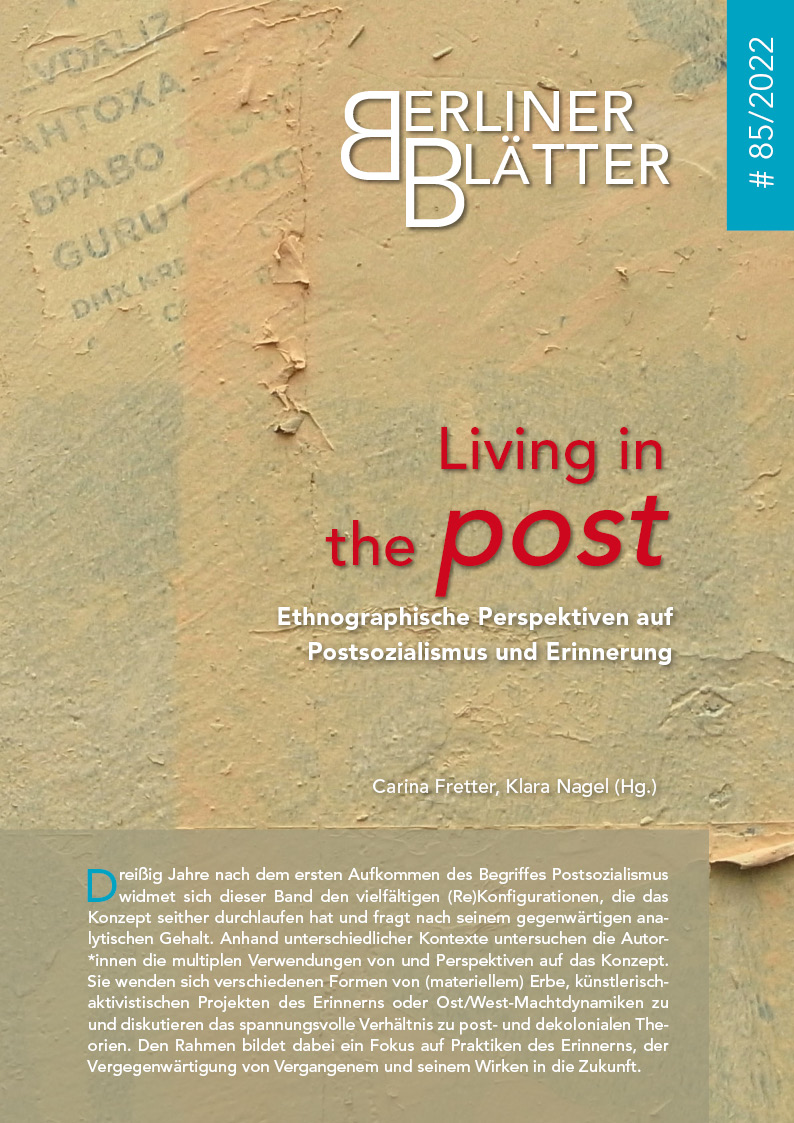Multiple Transformations
Societal Experience and Cultural Change in East Germany and East-Central Europe Before and After 1989
DOI:
https://doi.org/10.18452/23978Keywords:
labour, cultural heritage, creative industry, Saxony, transformation, musicAbstract
In February 2020, an interdisciplinary project cluster in Saxony, Germany, commenced research into societal experience and cultural change in East Germany and East-Central Europe before and after 1989. The cluster is comprised of four research projects within the broader theoretical framework of ‘multiple transformations’, with all projects utilising a practice-based perspective. The case studies draw on ethnography, participant observation, oral history and source analysis. In this paper, we discuss the concept of ‘multiple transformations’ and present two of our projects on the changes in everyday life in this period. The first, on the culture and creative industries of the Sorbian minority in Saxony and Brandenburg, shows the significance of cultural heritage for the self-determination of this group and the deployment of heritage for economic purposes, using the examples of the band SERVI and the publisher of the same name. The second project, on the former state-owned enterprise Margarethenhütte in Großdubrau, Saxony, illustrates the emergence of community-building organisations after the termination of work-based community structures in 1989, which have since aimed to preserve labour heritage. Together, these projects show the significance of practices and processes of heritage in different forms across our studies of ‘multiple transformations’ after the institutional changes of 1989/90. The paper demonstrates that interdisciplinary collaboration on these themes has particular potential for the study of this period.
Downloads
Published
How to Cite
Issue
Section
License
Copyright (c) 2022 Berliner Blätter

This work is licensed under a Creative Commons Attribution-NonCommercial-ShareAlike 4.0 International License.








